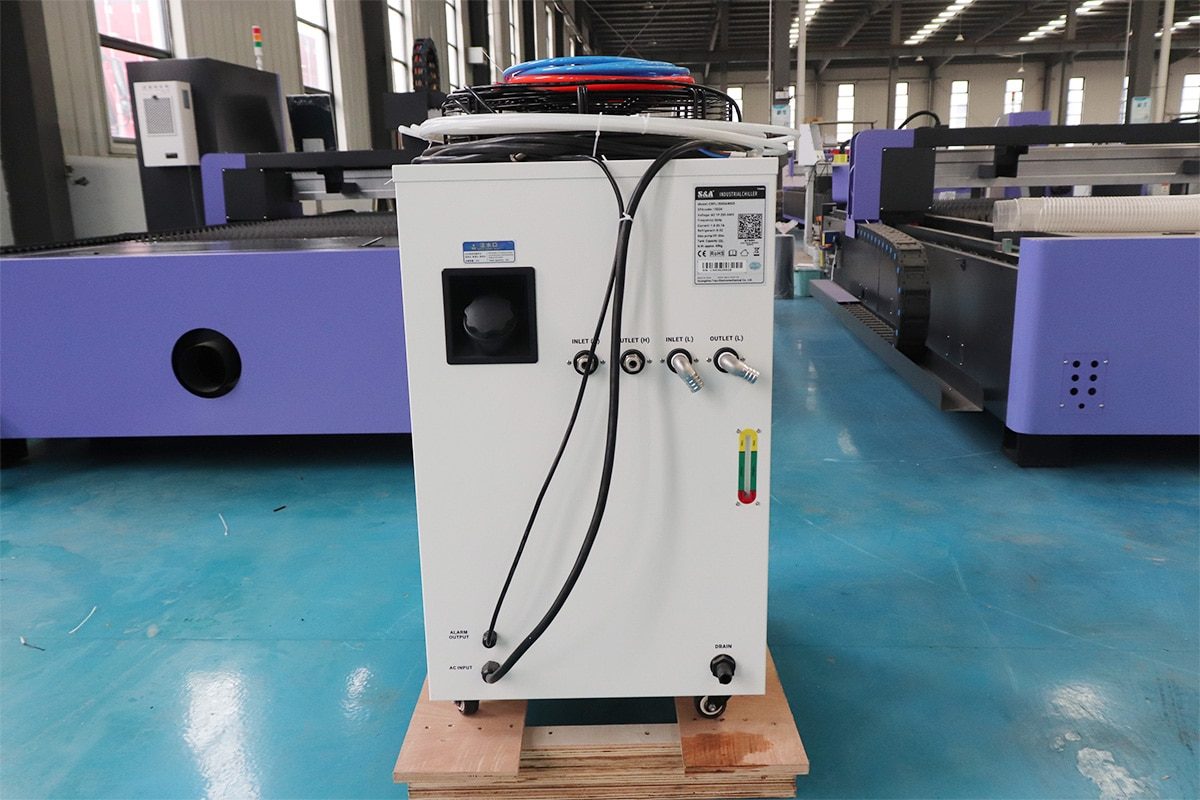
A rostlézeres vágógép hűtőrendszerének megértése
A modern gyártás során a szálas lézervágó gépek a fémfeldolgozó ipar alapfelszerelésévé váltak nagy pontosságuknak, nagy hatékonyságuknak és jó vágási minőségüknek köszönhetően. A hagyományos vágási módszerekkel összehasonlítva szálas lézervágó gépek páratlan előnyöket mutatnak az összetett minták és anyagok nagy pontosságú feldolgozása során. Ezek a nagy teljesítményű eszközök azonban működés közben sok hőt termelnek. Ha a hőt nem lehet hatékonyan elvezetni, az a berendezés túlmelegedését, teljesítményromlását vagy akár megsérülését is okozhatja. Ezért a hűtőrendszer különösen fontos a szálas lézervágó gép hosszú távú stabil működésének biztosításához.
A hűtőrendszer nemcsak a lézeres vágási folyamat során keletkező hőt tudja hatékonyan eltávolítani, hanem a legjobb üzemállapotban tartja a berendezést és meghosszabbítja annak élettartamát. Ez a cikk alaposan megvizsgálja a szálas lézervágó gép hűtőrendszerének működési elvét, funkcióját és típusát, valamint elemzi a hűtőrendszer karbantartásának elhanyagolásának következményeit. Ezen túlmenően a hűtőrendszerrel kapcsolatos gyakori problémákat és megoldásokat is megosztjuk, hogy a felhasználók jobban megértsék, hogyan kell karbantartani a hűtőrendszert, elkerülve ezzel a gyártási megszakításokat és a berendezés túlmelegedése miatti karbantartási költségeket. Ez a tudás segít a gyártásban dolgozó szakembereknek optimalizálni a berendezések használatát és javítani a munka hatékonyságát.
Tartalomjegyzék
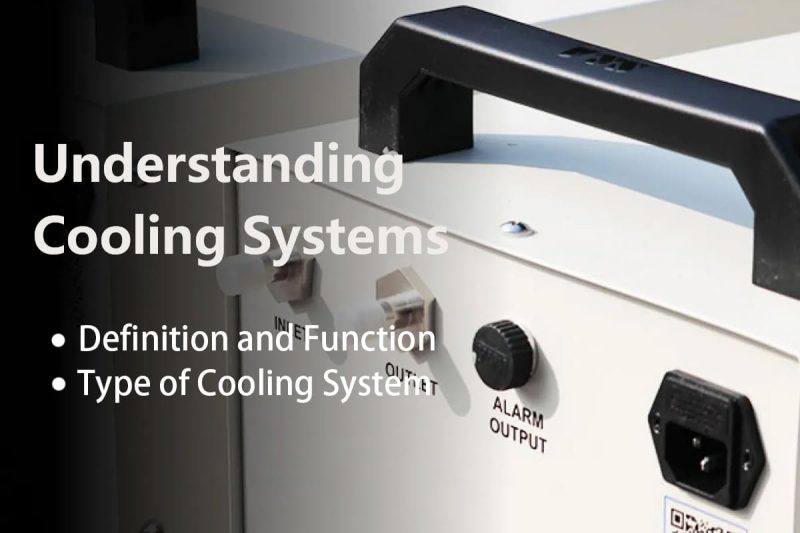
A hűtőrendszerek megértése
Definíció és funkció
A hűtőrendszer a szálas lézervágó gép központi eleme, amely főként a lézeres vágási folyamat során keletkező hő szabályozásáért felelős. A lézeres vágási folyamat során a lézergenerátor sok hőt termel. Ha ez a hő nem oszlik el időben, az a berendezés túlmelegedését okozhatja, befolyásolhatja a vágási pontosságot, és akár a berendezés károsodását is okozhatja. A hűtőrendszer fő funkciója a hő hatékony eltávolítása hűtőfolyadékon vagy levegőn keresztül, hogy biztosítsa a lézervágó gép optimális hőmérsékleti tartományban működik.
A hűtőrendszer típusa
- Vízhűtő rendszer: A vízhűtés az egyik legelterjedtebb és leghatékonyabb hűtési mód. A hűtővíz keringetésével a lézergenerátor és más kulcselemek által termelt hőt elvezetik. A vízhűtő rendszer rövid időn belül hatékonyan lehűti a gépet, és különösen alkalmas nagy teljesítményű lézervágó gépekhez. Előnyei közé tartozik a jelentős hűtőhatás és a stabil hőmérsékletszabályozás, de viszonylag magas a karbantartási igény, ami rendszeres hűtőfolyadék-cserét és tiszta vízminőséget igényel.
- Léghűtő rendszer: A léghűtő rendszer a berendezés által termelt hőt levegőárammal veszi el, és alkalmas kis vagy közepes teljesítményű lézervágó gépekhez. Kialakítása viszonylag egyszerű, általában nem igényel további hűtőközeget, és nem igényel olyan bonyolult karbantartást, mint a vízhűtő rendszerek. A léghűtés hőleadó képessége azonban rosszabb, mint a vízhűtéses rendszereké. Ezért inkább alacsony fogyasztású alkalmazásokban használják, és alkalmas bizonyos kis terhelésű feladatokra.
- Olajhűtő rendszer: Az olajhűtő rendszert főként speciális alkalmazásokban használják, amelyek hatékony hőelvezetést igényelnek, különösen nagy teljesítményű, nagyméretű lézervágó gépeknél. Az olaj hőkapacitása és hővezető képessége jobb, mint a víznek, így nagyobb hőleadást biztosít. Bár az olajhűtő rendszer kiváló hőelvezetési teljesítményt nyújt, karbantartási igénye magas. Az olajat rendszeresen cserélni kell, és az olajszivárgás és a szennyeződések is különös figyelmet igényelnek.
A különböző hűtőrendszereket a lézervágó gép teljesítménye, munkakörnyezete és használati követelményei szerint választják ki. Az ésszerű hűtési megoldás nemcsak a berendezés élettartamának növelését, hanem a lézervágógép hatékony és pontos működését is biztosítja.
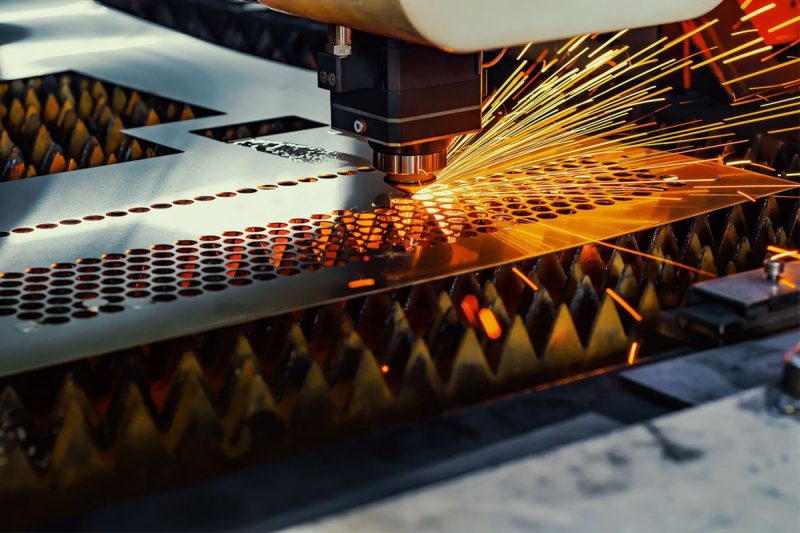
Hogyan működik a hűtőrendszer
A szálas lézervágó gép működése során nagy mennyiségű hőenergia keletkezik, amikor a lézersugár érintkezik a fémfelülettel. Ezt a hőt olyan alkatrészeken keresztül továbbítják, mint a lézergenerátor, optikai rendszer és vágófej, ami a berendezés hőmérsékletének túl magasra emelkedhet, ami befolyásolja a vágási pontosságot vagy károsíthatja a berendezést. Ezért a hűtőrendszer szerepe kulcsfontosságú. Felelős azért, hogy ezt a felesleges hőt időben elvegye, hogy a berendezés optimális hőmérsékleten működjön.
Hőtermelés és -vezetés: A lézeres vágási folyamat során a lézergenerátor által generált lézersugár nagy energiával lép kölcsönhatásba a fémfelülettel, és nagy mennyiségű hőenergiává alakítja át. A hő egy része közvetlenül az optikai rendszerbe kerül a lézergenerátoron keresztül, és tovább hat a kulcsfontosságú alkatrészekre, például a vágófejre. Ekkor a hűtőrendszer elkezd dolgozni, hogy elvonja a hőt ezektől a magas hőmérsékletű alkatrészektől.
Hőt adnak át a hűtőrendszernek: A hűtőrendszer keringő hűtőfolyadékot (például vizet vagy olajat) vagy levegőt használ a hőnek a lézergenerátorból és más magas hőmérsékletű alkatrészekből a hűtőbe vagy radiátorba történő átadására csöveken keresztül. A hűtőfolyadék vagy a levegő áramlási sebességének és hőmérsékletének szabályozása kritikus fontosságú a hő gyors és hatékony eltávolítása érdekében. A pontos áramlásszabályozás révén a hűtőfolyadék vagy a levegő biztosíthatja, hogy a kulcsfontosságú alkatrészek, például a lézergenerátor és az optikai rendszer mindig a megfelelő hőmérsékleti tartományon belül legyenek.
Hőelvezetési és hűtési folyamat: A hűtőfolyadék vagy a levegő átáramlik a berendezés központi elemein, például a lézergenerátoron, a vágófejen és az optikai elemeken, hogy eltávolítsa a hőt. A lehűtött folyadék vagy levegő ezután belép a hűtőbe vagy a radiátorba, és a hőt a külső környezettel történő hőcsere folyamaton keresztül a környező környezetbe disszipálja. Ez a ciklus hatékonyan csökkenti a berendezés általános hőmérsékletét, és megakadályozza, hogy a berendezés túlmelegedés következtében megsérüljön.
Hőmérsékletszabályozás és stabilitás: A hűtőrendszer biztosítja, hogy a lézervágó gép minden alkatrésze mindig az optimális üzemi hőmérséklet-tartományban legyen a pontos hőmérsékletszabályozás révén. A pontos hőmérsékletszabályozás nemcsak a lézergenerátor működési hatékonyságát és stabilitását javítja, hanem biztosítja a vágási minőség pontosságát és állandóságát is. Ezért a hűtőrendszer létfontosságú szerepet játszik a szálas lézervágó gép teljesítményében és élettartamában.
A hűtőrendszer létfontosságú szerepet játszik a szálas lézervágó gépben. A hő hatékony kezelésével biztosítja, hogy a berendezés az optimális üzemi hőmérsékleten működjön. Ha a lézeres vágási folyamat során keletkező hőt nem lehet időben elvezetni, az károsíthatja a kulcsfontosságú alkatrészeket, például a lézergenerátort, az optikai rendszert és a vágófejet, ami befolyásolja a vágási pontosságot és a berendezés hosszú távú stabilitását. A hűtőrendszer a hőt a keringtetett hűtőfolyadékon vagy levegőn keresztül távolítja el, és a hőt egy hűtőn vagy radiátoron keresztül vezeti el, hogy a berendezés hőmérsékletét stabilan tartsa. A pontos hőmérsékletszabályozás nemcsak a lézergenerátor teljesítményét javítja, hanem a vágási minőség hatékonyságát és állandóságát is biztosítja. Összefoglalva, a hűtőrendszer kulcsfontosságú eleme a lézervágógép hatékony és biztonságos működésének.
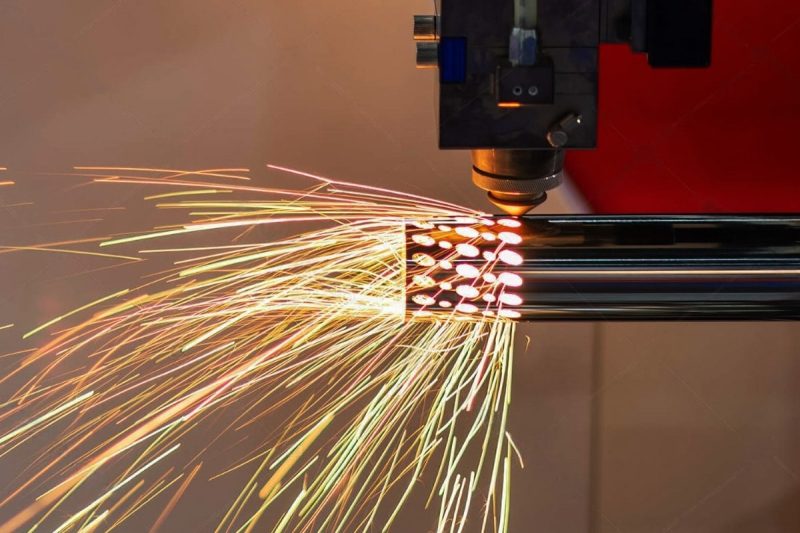
A hűtőrendszer karbantartásának jelentősége
A túlmelegedés megelőzése: A túlmelegedés az egyik leggyakoribb oka a szálas lézervágó gépek meghibásodásának, ami a berendezés teljesítményének csökkenéséhez, a vágási pontosság csökkenéséhez, sőt a kulcsfontosságú alkatrészek károsodásához vezethet. A hatékony hűtési rendszer révén a hő időben elvehető a berendezés túlmelegedésének elkerülése érdekében, ezzel biztosítva a berendezés folyamatos és stabil működését. A túlmelegedés megelőzésének és a berendezés védelmének alapja a hűtőrendszer rendszeres ellenőrzése annak hatékony működése érdekében.
Fenntartja az optimális működési feltételeket: A hűtőrendszer nemcsak a hőelvezetésért felelős, hanem a hőmérséklet-stabilitás megőrzésével biztosítja a lézervágó gép optimális működési tartományon belüli működését is. A hőmérséklet-ingadozások a berendezés instabil teljesítményét okozhatják, ami viszont befolyásolja a vágás minőségét és pontosságát. A jól karbantartott hűtőrendszer elkerülheti a hőmérséklet-ingadozásokat, ezáltal biztosítva az egyes vágások pontosságát és konzisztenciáját.
Hosszabbítsa meg a lézergenerátor élettartamát: A lézergenerátor a szálas lézervágó gép egyik alapvető alkotóeleme. A hosszú távú túlmelegedés felgyorsítja a lézergenerátor öregedését és csökkenti élettartamát. A hűtőrendszer hatékonyan veszi el a keletkezett hőt, és segít a lézergenerátornak megfelelő üzemi hőmérsékletet fenntartani, ezáltal meghosszabbítja élettartamát és elkerüli a magas csereköltségeket.
Csökkentse az állásidőt és a karbantartási költségeket: A hatékony hűtési rendszer hatékonyan elkerülheti a túlmelegedés okozta berendezések meghibásodását, csökkentheti a meghibásodások miatti állásidőt és karbantartási időt, valamint javíthatja a termelés hatékonyságát. Emellett a hűtőrendszer rendszeres karbantartása megelőzheti az esetleges problémákat, csökkentheti a nagyjavítás és az alkatrészcsere költségeit, és végső soron magasabb működési előnyöket érhet el.
Összefoglalva, a hűtőrendszer karbantartása nem csak a berendezés normál működéséhez kapcsolódik, hanem közvetlenül befolyásolja a lézervágó gép élettartamát, gyártási hatékonyságát és karbantartási költségeit is. Ezért a hűtőrendszer jó állapotban tartása a kulcsa az általános működési előnyök javításának.
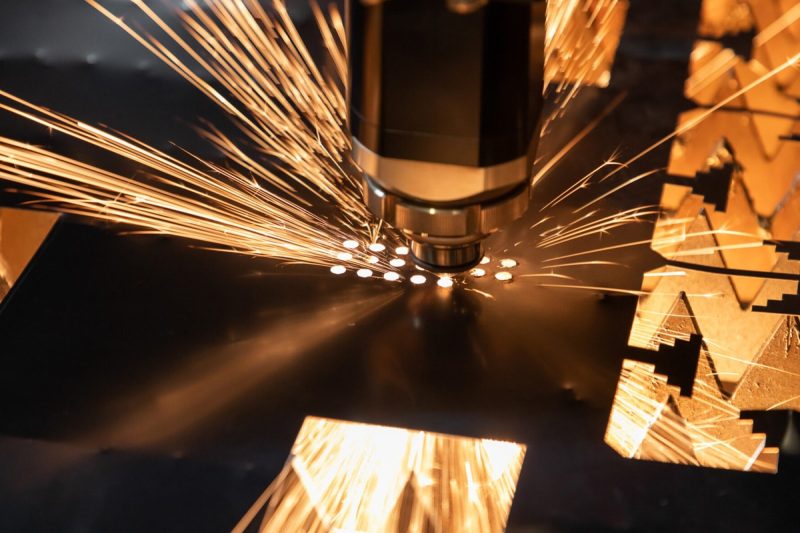
Hűtőrendszer karbantartási gyakorlatok
Rendszeres ellenőrzés és tisztítás: Elengedhetetlen a hűtőrendszer különböző alkatrészeinek rendszeres ellenőrzése, különös tekintettel a hűtőfolyadék áramlására és a hűtő tisztaságára. Bármilyen szennyeződés vagy eltömődés a hűtési hatékonyság csökkenését okozhatja, ami befolyásolhatja a lézervágó gép teljesítményét. A hűtő, a csövek és egyéb kulcselemek tisztán tartása megakadályozhatja a szennyező anyagok felhalmozódását és biztosíthatja a hűtőrendszer zavartalan működését.
Figyelje a hűtőfolyadék szintjét és minőségét: A hűtőfolyadék szintje és minősége közvetlenül összefügg a hűtőhatással. Rendszeresen ellenőrizze a hűtőfolyadék szintjét, hogy a megadott tartományon belül maradjon, és egyúttal ellenőrizze a hűtőfolyadék minőségét is. Hosszan tartó használat után a hűtőfolyadék szennyeződés vagy öregedés miatt csökkentheti a hűtőhatást, ezért időben ki kell cserélni, nehogy a hűtőfolyadék minőségi problémái miatt befolyásolja a vágógép működési hatékonyságát és élettartamát.
A hőmérséklet-beállítások kalibrálása és beállítása: A hűtőrendszer hőmérséklet-beállításait rendszeresen kalibrálni kell, hogy a lézervágó gép mindig a megfelelő hőmérsékleti tartományban működjön. A túl magas vagy túl alacsony hőmérséklet befolyásolja a berendezés teljesítményét és vágási pontosságát, ezért a hőmérséklet-szabályozó rendszer pontosságának és megbízhatóságának biztosítása érdekében a berendezés működésének megfelelően időben be kell állítani.
Mozgó alkatrészek kenése: A hűtőrendszerben sok mozgó alkatrész található, például vízszivattyúk, ventilátorok stb., amelyeket rendszeresen kenni kell. A kenés csökkentheti az alkatrészek közötti súrlódást és kopást, ezáltal meghosszabbítja az alkatrészek élettartamát és biztosítja a hűtőrendszer stabil működését. Rendszeresen ellenőrizze a kenőolaj minőségét, és szükség szerint töltse fel vagy cserélje ki, hogy a mozgó alkatrészek zavartalanul működjenek.
Időben történő javítás és csere: Rendszeresen ellenőrizze a hűtőrendszer különböző alkatrészeit, és azonnal észlelje és cserélje ki a sérült alkatrészeket, például szivattyúkat, csöveket és hűtőfolyadék-szűrőket. A hűtőrendszer bármilyen meghibásodása vagy alkatrészkopása befolyásolja az összhatást, sőt a berendezés leállását is okozza. A sérült alkatrészek időben történő javításával és cseréjével biztosítható a hűtőrendszer hosszú távú stabilitása, ezáltal megóvva a lézervágó gépet az olyan problémáktól, mint a túlmelegedés.
Összefoglalva, a rendszeres és átfogó karbantartási intézkedések elengedhetetlenek a hűtőrendszer stabilitásához és a lézervágó gép hosszú távú teljesítményéhez. A helyes karbantartási gyakorlat révén nemcsak a vágógép működési hatékonysága javítható, hanem a berendezés élettartama is meghosszabbítható, és a karbantartási költségek csökkenthetők.
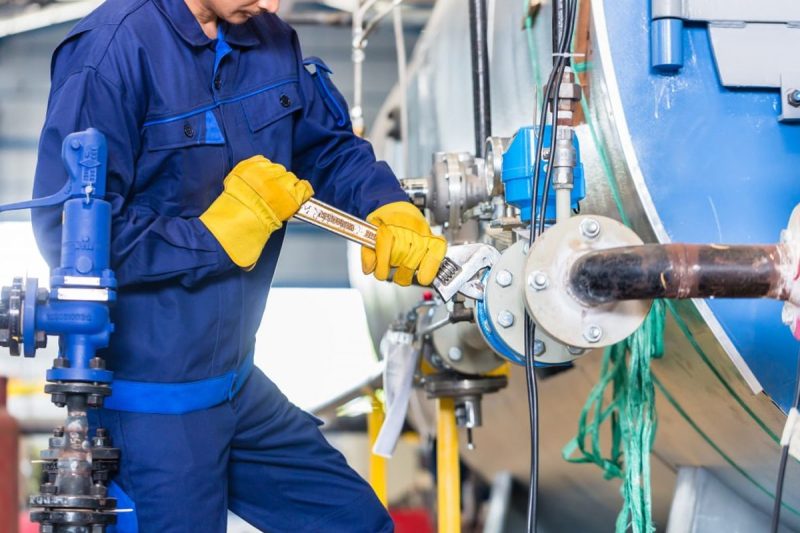
A hűtőrendszer karbantartásának elhanyagolásának következményei
Csökkentett vágási hatékonyság: A rossz hűtőrendszer vagy a nem megfelelő karbantartás a lézervágó gép túlmelegedését okozhatja, ami közvetlenül befolyásolja a vágási teljesítményt. Ha a berendezés túlmelegszik, a lézergenerátor és a többi magkomponens nem tartható az optimális üzemi hőmérsékleten, és a vágási hatékonyság jelentősen csökken. A túlzott hőmérséklet a vágási pontosság csökkenéséhez, egyenetlen vágási hatásokhoz vezethet, és végső soron befolyásolhatja a termék minőségét.
A berendezés meghibásodásának megnövekedett kockázata: A hűtőrendszer karbantartásának hosszú távú elhanyagolása súlyosbítja a berendezés túlmelegedésének problémáját és növeli a berendezés meghibásodásának kockázatát. A túlmelegedés nemcsak az elektronikai alkatrészek meghibásodását okozza, hanem a mechanikai alkatrészek kopását vagy károsodását is okozhatja, ami a gyártás stagnálásához, a karbantartási költségek növekedéséhez, sőt súlyos esetekben a berendezések cseréjéhez is vezethet. Ez az állásidő és a termelési szünet közvetlen gazdasági veszteséget okoz a vállalatnak.
A lézeralkatrészek lehetséges károsodása: A lézergenerátorok és más optikai alkatrészek nagyon érzékenyek a hőmérséklet-változásokra. A túlmelegedés nemcsak a vágás minőségét befolyásolja, hanem a lézergenerátor belső alkatrészeinek maradandó károsodását is okozhatja. A túlmelegedés az optikai lencsék és optikai szálak elöregedését, deformálódását vagy akár megégését okozhatja, ami viszont költséges javítást vagy cserét igényel, ami befolyásolja a berendezés hosszú távú stabilitását.
Magasabb üzemeltetési költségek: A hűtőrendszer karbantartásának elhanyagolása gyakori berendezések meghibásodásához és megnövekedett állásidőhöz vezet, ami közvetlenül befolyásolja a termelés hatékonyságát. Ez nemcsak a javítások és az alkatrészcsere költségeit növeli, hanem a leállások miatti gyártási késéseket is okozza, ami befolyásolja a vevők szállítási dátumait, így a cég hírnevét és jövedelmezőségét is. Végső soron a működési költségek jelentősen megemelkednek, ami gyengíti a vállalat versenyképességét.
Ezért a hűtőrendszer karbantartásának elhanyagolása nagymértékben befolyásolja a lézervágó gép működési hatékonyságát, élettartamát és teljes működési költségeit, ami hosszú távon komoly gazdasági veszteségeket okozhat.
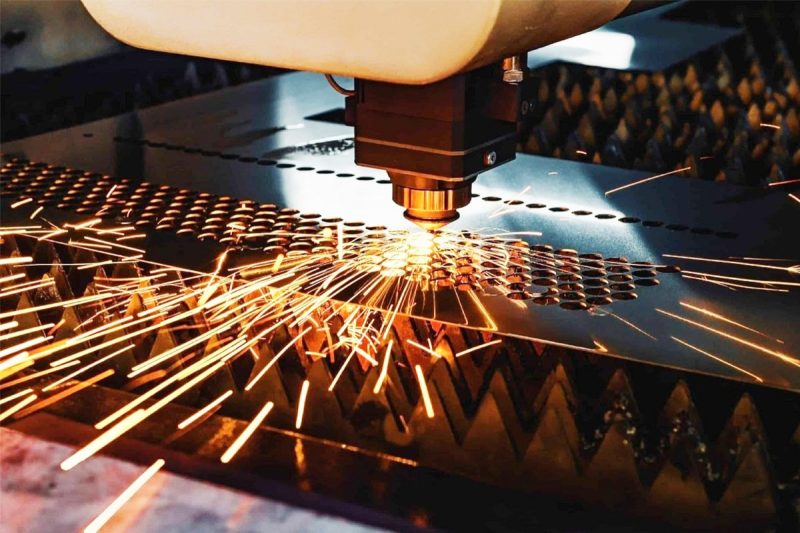
Gyakori hűtőrendszeri problémák és megoldások
A hűtőcső eltömődése: A hűtőcső eltömődése gyakori probléma a hűtőrendszerekben, amelyet általában a hűtőfolyadékban lévő szennyeződések, szennyeződések vagy üledékek felhalmozódása okoz. A csőelzáródás gyenge hűtőfolyadék-áramlást okozhat, ami viszont befolyásolja a hűtőhatást és a berendezés túlmelegedését okozza. A probléma megoldásának kulcsa a csövek rendszeres tisztítása a hűtőfolyadék zavartalan keringésének biztosítása érdekében. Használhat megfelelő tisztítószereket és berendezéseket a csövek öblítéséhez, és rendszeresen ellenőrizze a szűrőket, hogy ne tömődjenek el.
A hűtőberendezés meghibásodása: A hűtő a hűtőrendszer egyik központi eleme, és felelős a hűtőfolyadék hőmérsékletének szabályozásáért. Ha a hűtő meghibásodik, az pontatlan hőmérséklet-szabályozást okozhat, és befolyásolhatja a hűtőhatást. A hűtőberendezések gyakori meghibásodásai közé tartozik a kompresszor meghibásodása, a hűtőközeg szivárgása vagy a hőmérséklet-szabályozó rendszer meghibásodása. Rendszeresen ellenőrizze a hűtő működési állapotát, beleértve a hőmérséklet-beállításokat, a hűtőfolyadék szintjét és a hűtőközeg nyomását, hogy megbizonyosodjon arról, hogy megfelelően működik, és azonnal végezzen karbantartást vagy cserélje ki a sérült alkatrészeket.
A cirkulációs rendszer szivárgása: A keringtető rendszer szivárgása hűtőfolyadék veszteséget okozhat, ami befolyásolja a hűtőhatást. Ha a hűtőfolyadék nem elegendő, a hő nem távolítható el hatékonyan, ami a berendezés túlmelegedését okozza. Szivárgási problémák általában a csőcsatlakozásoknál, illesztéseknél vagy a tömítő alkatrészeknél jelentkeznek. Rendszeresen ellenőrizze a hűtőrendszer csöveit, csatlakozásait és tömítéseit, hogy megbizonyosodjon arról, hogy nincs-e szivárgás. Amint szivárgást észlel, a berendezést azonnal le kell állítani és meg kell javítani, a sérült részeket pedig ki kell cserélni a hűtőfolyadék további veszteségének elkerülése érdekében.
Hibaelhárítási és javítási technológia: Ha egy hűtőrendszer meghibásodik, kulcsfontosságú a probléma azonnali diagnosztizálása. Először is meg kell határozni a hiba konkrét helyét és okát, amely magában foglalhatja a hűtőfolyadék áramlását, a hőmérséklet-szabályozó rendszert, a hűtő állapotát és a csőtömítettséget. A diagnózis eredményei alapján végezze el a szükséges javításokat vagy cserélje ki a sérült alkatrészeket. Ha szükséges, kérjen professzionális műszaki támogatást vagy javítószolgálatot annak biztosítására, hogy a hűtőrendszer visszatérjen a normál működéshez, és elkerülje a gyártás megszakítását és a berendezés károsodását.
Összefoglalva, a hűtőrendszerrel kapcsolatos gyakori problémák elkerülhetők rendszeres karbantartással, időben történő ellenőrzésekkel és hatékony javításokkal. A problémák korai felismerése és megoldása biztosíthatja a lézervágó gép stabil működését és elkerülheti a hűtőrendszer meghibásodása miatti termelési veszteségeket.
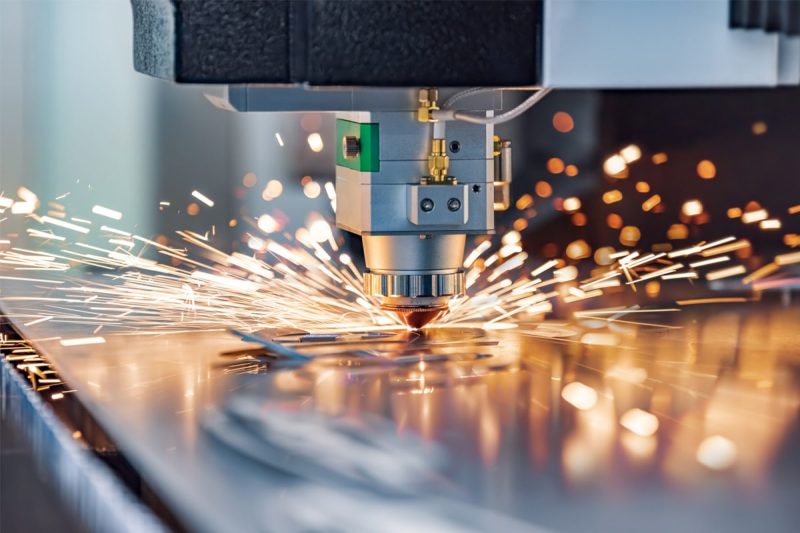
Összegzés
A hatékony hűtőrendszer a kulcsa a szállézeres vágógép stabil működésének. Ez nemcsak azt biztosítja, hogy a berendezés az optimális üzemi hőmérsékleten működjön, hanem közvetlenül befolyásolja a vágás minőségét és élettartamát. A hűtőrendszer hatékonyan megakadályozhatja a túlmelegedést, stabilan tartja a lézergenerátor és más kulcsfontosságú alkatrészek hőmérsékletét, és elkerülheti a hőmérséklet-ingadozások vagy túlmelegedés okozta meghibásodásokat és teljesítményromlást. A hűtőrendszer rendszeres karbantartása nemcsak stabil vágási teljesítményt tarthat fenn, hanem meghosszabbítja a berendezés élettartamát, csökkenti a meghibásodások előfordulását, és ezáltal csökkenti a hosszú távú üzemeltetési költségeket.
A hűtőfolyadék rendszeres ellenőrzésével, a csövek tisztításával, a hőmérséklet-szabályozó rendszer felügyeletével és a szivárgások gyors megszüntetésével a gyártók biztosíthatják a hűtőrendszer hatékony működését. Probléma esetén az időben történő diagnózis és a hatékony javítási intézkedések minimalizálhatják a berendezések állásidejét és javítási költségeit, valamint javíthatják a termelés hatékonyságát és a berendezések megbízhatóságát. Ezért a jó hűtőrendszer-karbantartási gyakorlat a kulcsa a szállézeres vágógépek hatékony működésének és a vállalkozások általános működési előnyeinek javításának.
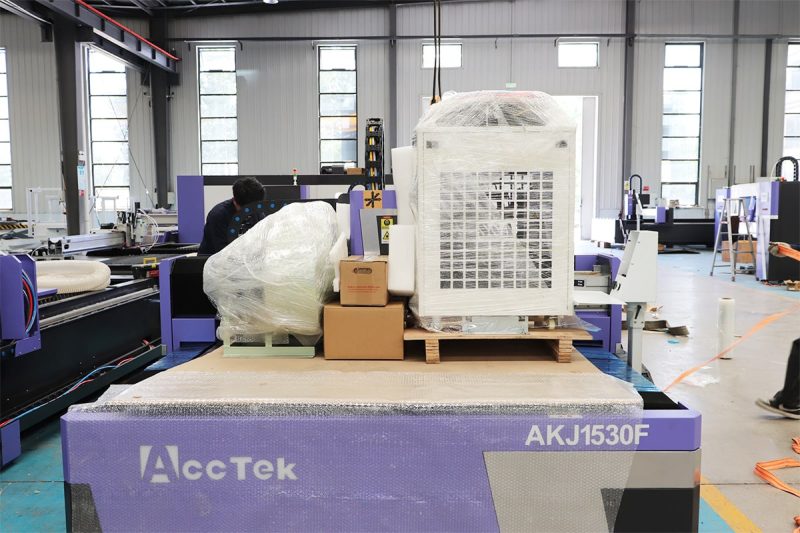
Szerezze meg lézeres vágási megoldását
Nál nél AccTek Laser, elkötelezettek vagyunk amellett, hogy hatékony és precíz szálas lézervágó gépi megoldásokat kínáljunk Önnek. Berendezéseink fejlett hűtőrendszerekkel vannak felszerelve, hogy nagy terhelés mellett is optimális munkakörülményeket biztosítsanak, kielégítve a különféle fémanyagok, köztük a rozsdamentes acél, alumínium, réz és egyéb nagy fényvisszaverő képességű anyagok forgácsolási igényeit. Legyen szó nagy pontosságú vágásról, összetett mintavágásról vagy nagyüzemi gyártásról, személyre szabott megoldásokat kínálunk a gyártási folyamat optimalizálásához.
A kiváló minőségű berendezések biztosításán túl ügyfeleinknek átfogó szolgáltatást is biztosítunk értékesítés utáni szolgáltatások, beleértve a professzionális telepítési útmutatót, a felhasználói oktatást és a rendszeres karbantartási támogatást. Berendezéseink kimagaslóak a stabilitásban és a tartósságban, megbízható garanciális szolgáltatásokat nyújtunk annak érdekében, hogy lézervágási projektjei zökkenőmentesen menjenek végbe, és hosszú ideig hatékonyan működjenek.
Lépjen kapcsolatba velünk most, ha többet szeretne megtudni termékeinkről, dolgozzunk együtt gyártási hatékonyságának javításán, és segítsük gyártósorát kiemelni a kiélezett versenypiacon!
Elérhetőség
- [email protected]
- [email protected]
- +86-19963414011
- No. 3 A zóna, Lunzhen ipari zóna, Yucheng város, Shandong tartomány.
Szerezzen lézeres megoldásokat
